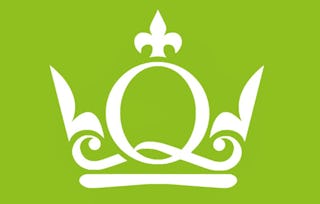This course concentrates on the design and development of different research instruments. In this vein, the focus will be placed on the development of an instrument design strategy, scales of measurement and the components of the research report. The course begins by looking at the questionnaire development process with a focus on questionnaire design, question type and wording, pretesting and revising. We will consider the identification of scales of measurement and operationalisation, and the design of an online questionnaire. We are going to discuss sources of measurement differences, and the assessment of the reliability of measurements. The issue of the validity of measurements and the various types of validity will also be explored, as well as attitude measurement. We will discuss data preparation and processing, data coding, adjustment, and data analysis using multivariate data approaches. We are also going to explore frequency distribution and measures of location, variability and shape. The course ends with a discussion on hypothesis testing and the use of statistics relevant to cross-tabulations. We will discuss parametric and non-parametric tests in hypothesis testing and group comparison as well as the different sections of the research report.

Research Instruments and Research Hypotheses
Ends tomorrow! Gain next-level skills with Coursera Plus for $199 (regularly $399). Save now.

Research Instruments and Research Hypotheses
This course is part of Market Research Specialization

Instructor: Queen Mary University of London
5,441 already enrolled
Included with
(24 reviews)
Recommended experience
What you'll learn
Develop an instrument design strategy
Design and use research instruments
Reflect on basic data analysis approaches
Skills you'll gain
Details to know

Add to your LinkedIn profile
See how employees at top companies are mastering in-demand skills

Build your subject-matter expertise
- Learn new concepts from industry experts
- Gain a foundational understanding of a subject or tool
- Develop job-relevant skills with hands-on projects
- Earn a shareable career certificate

There are 4 modules in this course
This week focuses on the questionnaire development process with a focus on questionnaire design, question type and wording, pretesting and revising. The week ends with a discussion regarding identification of scales of measurement and operationalisation and design of an online questionnaire.
What's included
4 videos5 readings5 assignments4 discussion prompts
The week commences with a discussion on sources of measurement differences, and the assessment of reliability of measurements. The issue of validity of measurements is discussed and the various types of validity are discussed. The week ends with a discussion of attitude measurement.
What's included
4 videos5 readings6 assignments5 discussion prompts
The week commences with a discussion on data preparation and processing. We are going to discuss data coding, adjustment, and data analysis using multivariate data approaches. The week ends with an exploration of frequency distribution and measures of location, variability and shape.
What's included
4 videos6 readings6 assignments4 discussion prompts
The week commences with a discussion on hypothesis testing and the use of statistics relevant to cross tabulations. We will discuss parametric and non-parametric tests in hypothesis testing and group comparison. The week ends with an exploration of the different sections of the research report.
What's included
4 videos4 readings7 assignments1 peer review4 discussion prompts
Earn a career certificate
Add this credential to your LinkedIn profile, resume, or CV. Share it on social media and in your performance review.
Instructor

Offered by
Explore more from Marketing
 Status: Free Trial
Status: Free TrialQueen Mary University of London
 Status: Free Trial
Status: Free TrialAmerican Psychological Association
 Status: Free Trial
Status: Free TrialUniversity of Michigan
 Status: Free Trial
Status: Free TrialAmerican Psychological Association
Why people choose Coursera for their career

Felipe M.

Jennifer J.

Larry W.

Chaitanya A.
Frequently asked questions
To access the course materials, assignments and to earn a Certificate, you will need to purchase the Certificate experience when you enroll in a course. You can try a Free Trial instead, or apply for Financial Aid. The course may offer 'Full Course, No Certificate' instead. This option lets you see all course materials, submit required assessments, and get a final grade. This also means that you will not be able to purchase a Certificate experience.
When you enroll in the course, you get access to all of the courses in the Specialization, and you earn a certificate when you complete the work. Your electronic Certificate will be added to your Accomplishments page - from there, you can print your Certificate or add it to your LinkedIn profile.
Yes. In select learning programs, you can apply for financial aid or a scholarship if you can’t afford the enrollment fee. If fin aid or scholarship is available for your learning program selection, you’ll find a link to apply on the description page.
More questions
Financial aid available,
¹ Some assignments in this course are AI-graded. For these assignments, your data will be used in accordance with Coursera's Privacy Notice.





